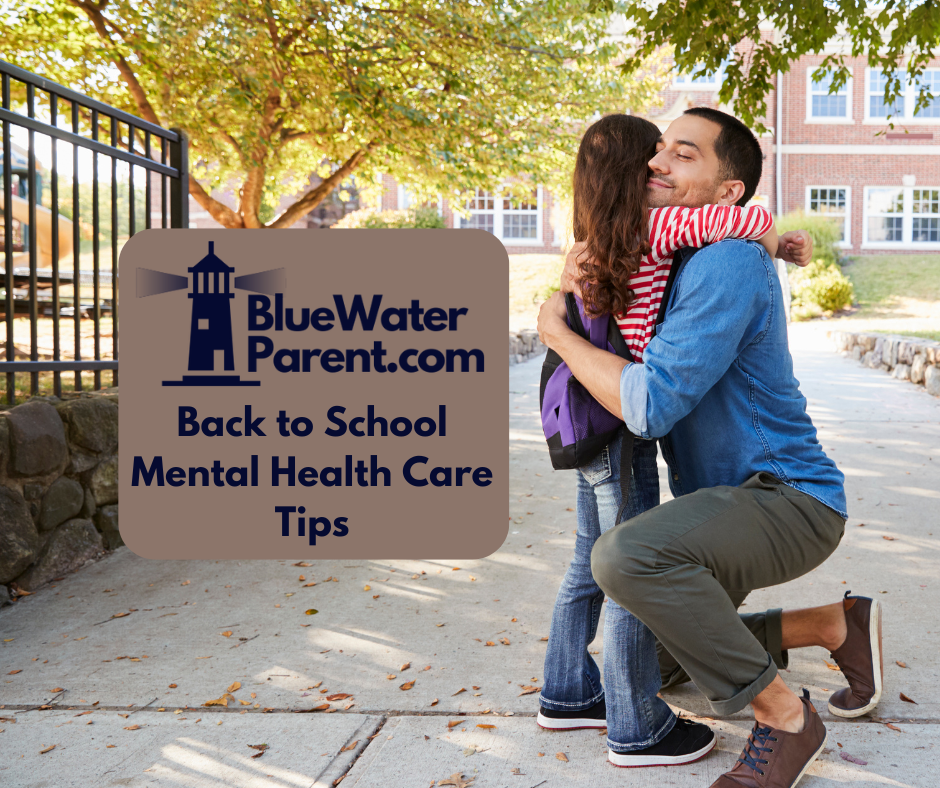Originally Published September 10, 2024
Back-to-School Time is Here!
For families, back-to-school can mean a shift from the unstructured, carefree days of summer to the busy schedules, big emotions, and increased expectations of the school year.
How can families support each other’s mental health during this season of life?
We asked our friends at Blue Water Counseling for some advice. Shannon McKeever, LMSW, shared some tips to support family mental health during the school year.
Establishing and maintaining routines
- Consistent routines before school, after school, and at bedtime will make these times of the day go smoothly. Children thrive when they know what to expect.
- Creating charts for the child (ren) to be able to complete these tasks on their own. Children like to feel independent, so a chart on the bathroom wall of the morning and bedtime routines allows them to be able to reference and complete tasks without being told each step.
- Positive reinforcement when the child (ren) follows through with their routines. Instead of focusing on what is missed, focus on what has been accomplished and the progress being made. “I see you are in your pajamas, your hair is brushed, and your day clothes are in the laundry. Great job. Can you check your chart to see if anything was missed?” when knowing they had not yet brushed their teeth.
Age-Appropriate Schedules
- Children need time to be their age, time to spend time with friends, play with their toys, spend time with family, and downtime to relax and reset.
- Making sure that extracurricular activities are not overwhelming, and making sure that they can still have time for schoolwork and socialization.
- Identify that different age groups have different needs. Many people have children whose ages can span large differences. Identify that free time for an elementary-aged child and a middle school or high school child will look differently.
Boundaries and Choices
- Give your child boundaries and choices. Children at any age thrive when they feel empowered. During the school year, they are often told what they must do. Allowing some freedom to make decisions for themselves is important. Do not make the areas too overwhelming, but asking them to pick between 3 outfits the night before school allows them to wear what they want, but also narrows the selection down enough so they do not get overwhelmed with all the possibilities.
Accept Imperfection
School is a lot of pressure; children have more expectations than in generations that came before. Allow your child to not be perfect.
- We all have an illusion that our child is successful if they are an all-A student. In reality, our children are successful in their efforts to do the best they can
- Focus on rewarding/ praising children for their efforts in school and at home. They put enough pressure on themselves, and being their cheerleader and support system helps improve their mental health.
Talk
Take time to talk with your child.
- Often we ask how our child(ren)’s day was and we get a generic answer “good”, “fine”, etc.. Instead, ask specific questions about their day. “How did that test go in math?” “What are two things you enjoyed in school today?” “Who did you sit with at lunch?”.
- When your child comes to you to talk, listen to them. As they get older, you can ask questions about what they need, like, “Are you looking to help solve this or just need me to hear you today?” We often go into problem-solving mode, and sometimes our children just need to be heard and understood.
- Allowing our children to know that they can come to us about anything and that there will not be an automatic negative response. Letting them know that they can tell you they failed a test and that they will not be grounded in return (going back to noting the effort and not the grade)
These tips will help reduce stress for both parents and children. It allows for better communication and reduces conflict. When establishing changes, there will be a transition period. When the changes become the new normal, you will have more time to enjoy your time together.
Story by Jennie McClelland for BlueWaterParent.com.
All content of BlueWaterParent.com is for informational and entertainment purposes only and does not constitute medical advice.




